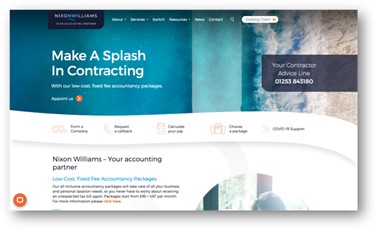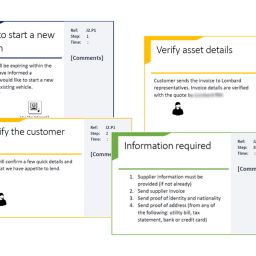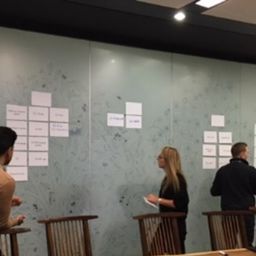
Digital transformation in professional services (B2B)
Optionis plan for the future with digital transformation initiative

Optionis Group is the UK’s market-leading professional services provider to contractors and small businesses. Supporting over 37,000 customers through a collection of specialist brands, Optionis specialise in accountancy, tax, and umbrella employment services and solutions.
In the accountancy space there are five individual brands including Nixons Williams and SJD. With Parasol and Brian Alfred providing umbrella and tax capabilities respectively.
Optionis had both a new management team and new owners. They had identified a transformation opportunity and needed a deeper understanding of the customers to support strategic planning. There was also a need for the identification of quick wins to facilitate a short-term uplift in business.
Alongside the customer insight need, Optionis also wanted to access the knowledge held within the five brand teams. As well as the thoughts of the senior management team itself.
The brief was therefore to:
- Capture the stakeholders view of the brands, their customer base, their perception of customer needs
- Generate a detailed understanding of the customers, what their stated and unstated needs are, how they relate to the current brand propositions, where are the gaps, what are the opportunities.
- And identify quick wins
The research would also be used by a soon to be appointed management consultancy that would consider rebranding and group structure.
The overall engagement would take nearly 3-months and so it was most effective to “embed” one of UX24/7’s senior researchers in Optionis for the duration of the project. With the pandemic raging, the reality was a remote working relationship, but nevertheless there were benefits from the dedicated resource.
The first step was to carry out substantial desk research. The goal was to uncover the insight held by Optionis in existing documentation about customers from previous research. This would avoid duplication in the research to follow, provide some hypotheses to be challenged and create a solid foundation for the engagement.
Stakeholder interviews came next. This is where having a dedicated, embedded researcher started to pay dividends. Scheduling very senior stakeholders, during a pandemic is no easy job. Our research ops team had to work very hard to make sure all the sessions happened. In the end they were scheduled over multiple dates to accommodate all the diaries and our researcher was able to flex the project to make it work.
The objectives for these interviews were to gather a detailed understanding of the business and its customers from the stakeholder perspective in the context of:
- What the business stands for.
- What the team believe the existing customer base is.
- Who is the business attracting and why?
- Trends and challenges both customers and the business are experiencing.
- The language used by the stakeholders and what resonates with them.
The customer research was conducted after the stakeholder sessions. The sessions had dual objectives:
- To understand customers and prospective customer motivations, goals and journeys when identifying potential providers (discovery research).
- To identify quick wins based on an evaluation of the existing online experience with some of the brand sites (evaluative research).
To accommodate these objectives, extended research sessions of 90-minutes were run. The first 60-minutes was dedicated to the discovery research using a path of expression framework. This involves the customer being asked to describe their current experiences. Next, they are asked to select and reflect on memories from earlier experience. Having established this mindset, we can then explore with them the possibilities for the future.
The final 30 minutes were used to evaluate the experience they would have, deciding which of the Optionis brands would be a suitable service provider for them. Given the conversation in the first 60-minutes they would be in the perfect “head-space” to provide feedback.
QUICK FACTS
- Depth interviews conducted with 12 Optionis stakeholders
- Discovery research carried out with 12 customers
- Quick wins identified
- Consolidated findings
The research provided a deep understanding of customers, prospects, their needs and motivations. A key part of the deliverable was a hierarchy of expectations that the proposition would need to address. This would help shape the future proposition development.
Alongside this, the research provided detailed profiles of the different customer types interviewed. The profile information would be valuable in creating personas for use by the UX team. At present the main source of customer information is contained in segmentation.
The customer research also provided a clarity about the process they go through, the key information required to support their decisions at each stage, and the sources of information they relied on.
The customer insight was balanced with the stakeholder research, which identified a cohesive team with a common view.
The evaluative research delivered the quick wins that were hoped for. Quick didn’t always mean tactical and for example, the research identified which of the brand websites had the most potential to resonate with the new proposition.
Many of the findings of the usability evaluation have formed the foundations for a website redesign which is now ongoing.
“The final report provided by UX24/7 is still referred to in almost every SMT meeting. The execution and engagement were first rate and the ROI of both the foundational insight and quick wins has surpassed out expectations.”
– Neal Preece, Chief Digital
Optionis Group













